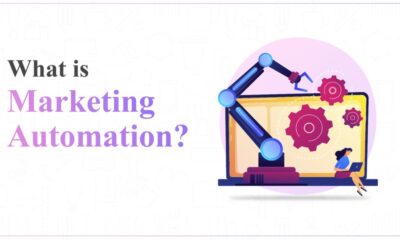Business
Rising Taxes: 6 Preparation Strategies to Help You Save Cash

Significant tax reforms are imminent. This is because the Tax Cuts & Jobs Act (TCJA) has several important provisions that will expire on December 31, 2025, at midnight. Furthermore, it’s likely that some of these changes may result in higher income taxes for you in 2026 unless Congress steps in.
Currently, depending on your tax bracket, your income tax rate will increase by one to four percentage points if you make $11,600 or more annually. Additionally, you should expect your standard deduction to be nearly halved at the same time. Put another way, it’s a double-edged sword since the income level needed to enter a higher tax band decreases in tandem with an increase in tax rates.
Six Ways to Benefit from the Lower Tax Rates of Today
Even though there might be a tax increase in the near future, there is still time for you to benefit from the current lower rates. So let’s look at how you might take full advantage of the current circumstance.
1. Remain Knowledgeable
The first line of defense is knowledge. If nothing else, at least you will know that if tax rates rise in 2026 and your take-home income decreases, you won’t be taken by surprise. Check out our most recent piece, 11 Significant Tax Changes on the Horizon, if you haven’t already. You’ll have a clearer picture of what is ahead. And keep checking back for more details on this subject. Things could change between now and the end of 2025 since tax adjustments like these can be political fodder, particularly in an election year.
2. Examine Your Retirement Assets
Reviewing your retirement savings alternatives, such as your 401(k) and other employer-sponsored plans, is one thing you can do. It might be a good idea to take advantage of Roth retirement contributions right now, given the current low tax rates. As long as you’re 59½ or older and have owned your Roth account for at least five years, you usually won’t pay income tax on withdrawals made during retirement. With Roth accounts, you’ll pay taxes now on the money you contribute while rates are low, but your money grows tax-free.
Permanent life insurance and nonqualified annuities are excellent choices if you want to do even more. These tools offer additional strategies for allocating your after-tax income toward retirement or other long-term objectives. This is so because the increase is tax-deferred and your premiums are paid with after-tax money. Your financial advisor can assist you at any time to access the tax-advantaged cash value of your permanent life insurance policy.
Speak with your Northwestern Mutual financial advisor if you’d like to assess your retirement savings plan in light of the TCJA. To determine which course of action is appropriate for your particular circumstance, you can discuss your alternatives with each other while keeping your overall financial strategy and life goals in mind.
3. Increase Revenue Before 2026
Tax experts typically search for ways to postpone your income (more on that in a sec). However, as tax rates are predicted to increase, this could be the ideal opportunity to accelerate your income. It makes sense to pay taxes now while rates are low, even though doing so may result in an increase in your taxable income during the following several years.
Converting to a Roth is one approach to increase income faster. You haven’t paid taxes on any money you have in an employer-sponsored plan or a regular IRA as of yet. Rather, income tax will be levied on your retirement withdrawals. However, you can accelerate that income and lock in the lower tax rates of today by converting part, or possibly all, of your pretax retirement account(s) to Roth before 2026. However, there are a lot of things to take into account, so it’s crucial to discuss the benefits and drawbacks of a Roth conversion with your financial advisor and tax expert. Ask about different ways to increase your revenue while you’re conversing.
4. Defer Income Starting in 2026
It might be appropriate to postpone income once more in 2026 if your taxes do increase. The aim here is to defer paying taxes on your money until later, when perhaps interest rates will be lower. Contributing conventionally (pretax) to a 401(k) or other retirement plan is one approach to do this. You may potentially lessen the impact that increased tax rates will have on your salary if you choose to convert your employer-sponsored plan contributions from Roth (post-tax) to traditional contributions.
5. Apply The Bunching Method
Combining deductions can help you save a lot of money on taxes. Like the majority of Americans, you probably haven’t filed an itemized return since the TCJA took effect. That could be partially attributed to the standard deduction being increased by the bill. However, you might not get this higher standard deduction after 2025, therefore it might be wiser to wait to combine deductions until 2026. In certain cases, you can accomplish this by postponing payments for charitable contributions, medical costs, and state and local taxes (SALT) until the end of the current year. In early 2025, if bunching seems like the proper move for you, make a note to follow up on this.
6. Locate Revenue Streams That Are Tax-free
You should also think about keeping municipal bonds in your taxable investment accounts as another planning possibility. This is so because municipal bond returns are exempt from federal income tax. You can choose whether municipal bonds should be a part of your portfolio or not with the assistance of your financial advisor.
-

 Tech3 weeks ago
Tech3 weeks ago12 Essential Marketing Tools Every Small Business Owner Should Try
-

 Business4 weeks ago
Business4 weeks agoSmart Strategies to Stay One Step Ahead in a Competitive Market
-

 Startup2 weeks ago
Startup2 weeks agoEssential Tips for New Retail Business Owners to Succeed in a Competitive Market
-

 Business4 weeks ago
Business4 weeks ago9 Low-cost Marketing Strategies and Ideas That Offer a Good Return on Investment for Small Businesses
-

 Tech4 weeks ago
Tech4 weeks agoHow Small Business Can Start with Marketing Automation Software
-

 Tech1 week ago
Tech1 week agoAdobe Partner with Benny Blanco to Help Small Business Branding in ‘Create Anything’ Campaign
-

 Business3 weeks ago
Business3 weeks ago7 Essential Investment Success Tips Every Investor Should Know: How to Beat the Market
-

 Tech4 weeks ago
Tech4 weeks agoGoogle’s Change to Google Local Services Ads Could Have an Impact on Millions of Small Businesses























